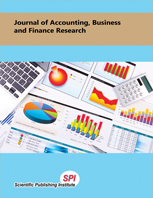Forensic Accounting and Fraud Management in Nigeria
DOI:
https://doi.org/10.55217/102.v14i1.505Keywords:
Information technology, Fraudulent practices, Trend, Data mining.Abstract
The study evaluated forensic accounting techniques on fraud management in the public sector ministries, departments and agencies (MDAs) in Nigeria. Based on the rise in corruption in Nigeria, evidenced in the latest Transparency International corruption perception index of Nigeria, and the fact that the public sector constitutes a larger part of the economy in Nigeria, this study was undertaken to ascertain the operational ability of forensic accounting techniques in public sector accounting departments. The study investigated how data mining, accounting ratios and trend analysis tools detect to prevent fraudulent activities in MDAs. A survey research design was adopted for the study. The ordinary least squares (OLS) multiple regression analysis technique revealed that the adoption of forensic accounting tools (data mining, accounting ratios and trend analysis) will significantly enhance the ability to detect and/or prevent fraud in MDAs. It also revealed a knowledge gap in the application of these preventative control techniques and the usefulness of trend analysis as a technique for detecting fraudulent practices in public service operations. It is thus recommended that the human capital of MDAs is developed by making professional qualifications and knowledge of information technology mandatory requirements for staff working in the accounts department and ensuring robust IT facilities.


